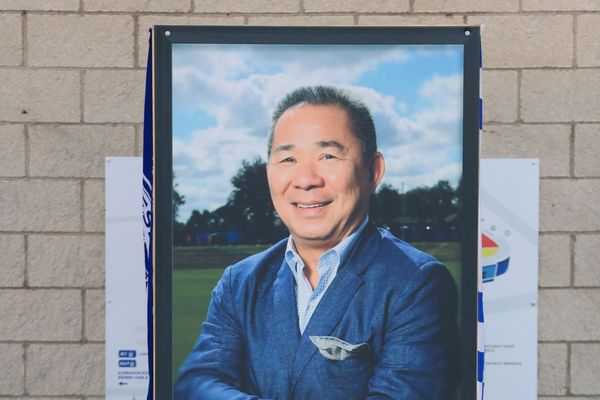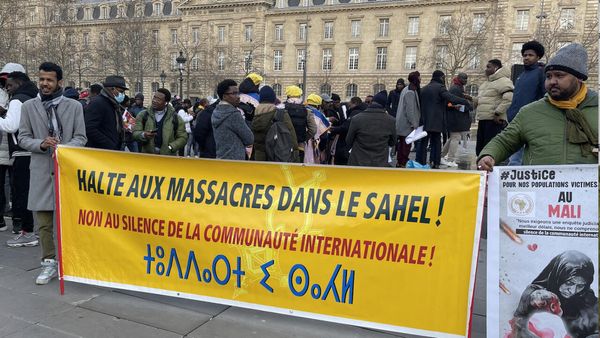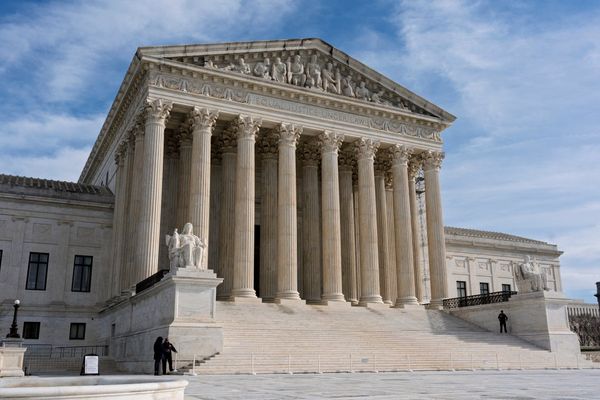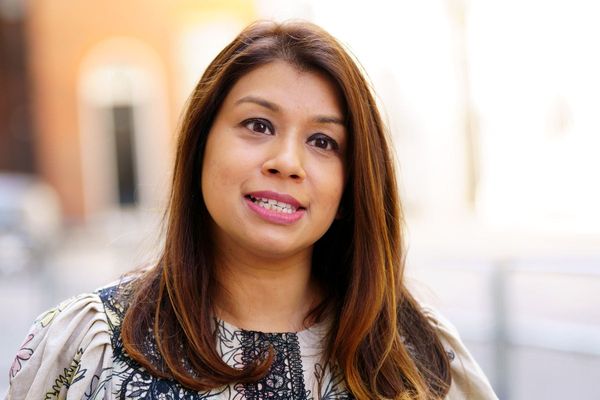
Foxconn founder Terry Gou (郭台銘) hit the streets this week to appeal to the common folk, a demographic he desperately needs before the Kuomintang (KMT) presidential candidate is announced on Monday, July 15.
From running the company that manufactures iPhone chips to becoming the richest man in Taiwan, Gou seemed unlikely to shake the attitude of elitism that followed his corporate success. But he used his bourgeois status to his advantage while shaking hands and listening to pleas of street vendors and residents.
He acted like the reversal prodigal son: the boy who left his simple life to build a tech empire and returned home a business mogul to become champion of his people. His visits were received with much fanfare.
A populist approach to a presidential race is not uncommon today. The United States had Donald Trump. The Philippines had Rodrigo Duterte. France had Marine Le Pen. Populism is now a pandemic.
For the KMT presidential primary, Gou is only one of three populist candidates still in play - and that is a problem.
Populism in a Nutshell
Let us backtrack and talk about populism as a whole.
In political science, the ideology of populism pits “the pure people” against “the corrupt elites” in society. Thus, political actors who seek support from the people will use the antagonism felt towards the elites to their benefit. They would often run a campaign based on issues and sentiments that the people feel have been disregarded by the establishment.
A populist candidate is viewed by the electorate as a champion of the people, as opposed to the elites.
Being a champion of the people would presumably mean that the politician's agendas can best reflect what the people want. Yet, appealing to the people's desires does not equate to actually representing their interests.
In the case of President Trump, he appealed to the American working class with his promise of “making America great again” through the revival of the blue-collar sector. His candidacy was grounded in the support of the common people, even though his campaign promises have largely fallen through during his time in the Oval Office.
The label of populism, then, has gained itself negative connotations despite its continued growth as a worldwide political phenomenon.
As politics has become more polarized in most democratic systems, often due to the differences in key issues and political parties, any candidate proposing anti-establishment ideas can easily gain the favor of disgruntled voters.
In a nutshell, populism reflects the distrust in conventional political players and maneuvers, and it is becoming the new norm in politics.
Taiwan's Populist Candidates
As Taiwan's 2020 presidential election is approaching, the KMT is in the works of finalizing its candidate while the Democratic Progressive Party (DPP) has nominated Tsai Ing-wen (蔡英文) for re-election. Political alliances are up in the air as speculations are floating around about KMT members abandoning party ties to declare an independent run.
In the current presidential primary race, being populist is the new sexy.
Here is a brief review of those populist candidates as there are too many.

1. Han Kuo-yu (韓國瑜)
Party Affiliation: KMT
Populist Appeal: The incumbent mayor of Kaohsiung won the election last year with the promise of making Kaohsiung rich and great. His promise was backed with loose plans that stand solely on his charismatic leadership. Though he is a conventional politician, there is nothing normal about his rise in popularity. His current agenda is pro-China, and he does not shy away from his stance. Certain media outlets have also glued their coverage to every move of Han, painting him in a positive light. He is always surrounded by zealous fans - not supporters, but fans.

2. Terry Gou
Party Affiliation: KMT
Populist Appeal: Gou and Trump are acquaintances, and many have considered Gou the "Trump of Taiwan.” They share similarities in their business background, extramarital affair scandals, and patriotism. Like Trump, Gou constantly fashions himself in a baseball cap embroidered with the Republic of China (ROC) flag. He claims to walk comfortably on the tightrope between Washington and Beijing, both of which he has vast connections with.

3. Dr. Ko Wen-je (柯文哲)
Party Affiliation: None
Populist Appeal: Dr. Ko is the incumbent mayor of Taipei. Before diving into politics, he was a surgeon at the National Taiwan University Hospital. His decision to remain partyless is one of his biggest appeals. Along with his pragmatism, Ko has also built a personality cult around his charismatic leadership style, which is interesting as his coarse manners seem to be his unique selling point. His “cut-the-crap” attitude and his use of social media have made him popular with the younger voters.
How Will These Populist Candidates Threaten Conventional Politicians?
While Han is leading in the polls, Gou might be open to running independently as he has not promised to back Han if he lost the KMT primary. As for Ko, he has not declared his intent to run for presidency at all despite speculations. The three potential presidential candidates each have gained more media attention than any other conventional politician in the race.
Eric Chu (朱立倫), the mayor of New Taipei City, is coming in third in the KMT primary polls. He is unlikely to win the party’s endorsement this weekend despite his solid experience with governing and well-spoken mannerisms— one would not describe him as particularly interesting or down to earth. His main message is party unity, which is not that enticing to the public when sized up against that of his populist peers.
President Tsai, on the other hand, is under pressure. Despite being the country’s first female president and making Taiwan the first in Asia to legalize same-sex marriage, Tsai stepped down as chairwoman of the ruling DPP after her party's electoral defeat in the 2018 local elections. It would be challenging for a party to be re-elected into office after losing the previous local elections as utterly as the DPP did.
Currently stopping over in New York City for a diplomatic trip to the Caribbeans, President Tsai faces criticism for her strained relationship with China as worsening Taiwan's foreign policy and diplomatic relations. Coupled with her unpopular pension reform, Tsai will be challenged for her less than perfect track record.

For the 2020 Election, the Popular Vote is the Populist Vote
On January 11, 2020, Taiwanese voters will elect their new president through a popular vote.
Make no mistake, though, the popular vote is currently the populist vote.
The Taiwanese political narrative has deviated from electing the safest candidate for Taiwan's future. We are tired of the political bickering between the green and the blue and being betrayed by the very politicians we've elected to represent our interests. So now we would rather elect pseudo-celebrity personalities, business owners, and doctors than placing our trust in conventional politicians.
As a Taiwanese voter myself, I have nothing against championing the Biblical David after he defeats Goliath for the good of his people. I also do not think that a political background is a prerequisite for a candidate to do his or her job effectively.
Rather than doubting a populist's ability to govern, I would like to question our politicians for losing a game they designed.
The beauty of a democratic system is that the electorate is given the right to participate in choosing a representative for the people. When the Taiwanese public is now willing to consider inexperienced candidates from a different pool, especially a risky one, I wonder why our experienced politicians cannot yield satisfactory candidates to run for president.
Too many populists are gunning for the presidential office in 2020, and they all claim to represent the people of Taiwan. They each have their appeals, and some may even do well as president.
If we elect a populist president next year, populism will become the new norm in Taiwan's democratic system. The day will come when a populist candidate presses all the right buttons, appeals to all the right emotions, and wins the popular vote only to erode the very democratic institutions that granted his or her powers.
This is how populism will threaten our democracy.
Read Next: Will Tsai Turn the Tables in the 2020 Election?
If you've enjoyed this article and want to receive more story updates, please be sure to like our Facebook page below.
TNL Editor: Daphne K. Lee (@thenewslensintl)







